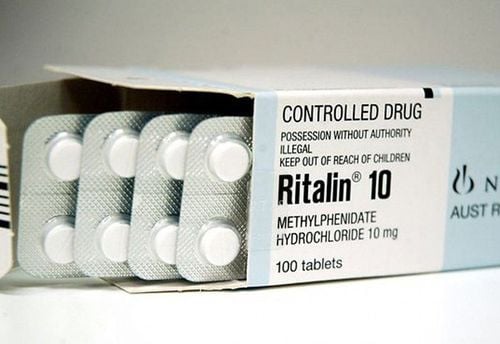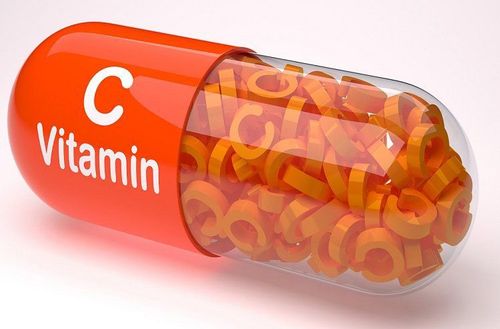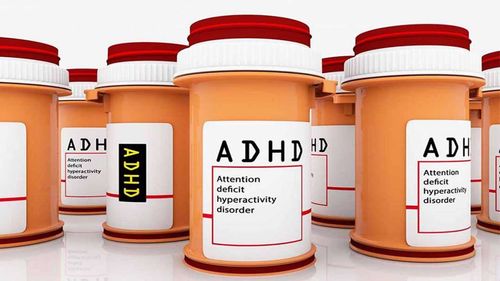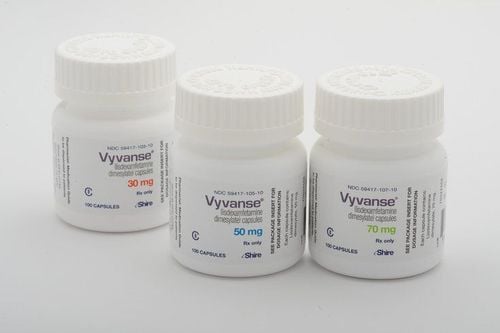This is an automatically translated article.
This article looks at the role nutrition plays in the treatment of attention-deficit/hyperactivity disorder (ADHD), as well as how to eliminate certain foods and additives, and consume certain foods or supplements. other nutrients, which may impact ADHD symptoms.1. Research on how diet and nutrition affect ADHD
The role of nutrient supplementation including potential mechanisms behind why nutrient supplementation may alleviate some symptoms of ADHD will be examined. review. Elimination diets have been considered in the management of ADHD symptoms since the 1970s, beginning with the work of Feingold, a pediatric allergist, who recommended eliminating food additives. as colorants and preservatives associated with other foods. Feingold hypothesized that highly antigenic foods (often associated with allergies and intolerances) negatively affect the behavior of children with ADHD. Despite reports by many families that eliminating these foods, based on Feingold's diet, significantly improved their children's behavior, early results from efficacy studies are still lacking. cannot be confirmed. In the decade following these mixed results, stimulant medication was considered the mainstay of treatment for ADHD, which contributed to a decline in scientific interest in dietary interventions for ADHD. with ADHD.Over the past two decades, scientists have re-interested in dietary interventions for ADHD. In randomized, placebo-controlled studies from the University of Southampton, the consumption of food colorings and preservatives was found to be associated with hyperactive behavior in children aged 3 and 8 or 9 years of age. community samples. Although this was a community-based study rather than a clinical trial, the findings have led to a re-examination of Feingold's dietary theory, at least for some children. hyperactive.
One study that further investigated the effects of food additives and colors on ADHD symptoms was the "Impact of Nutrition in Children with ADHD (INCA)" study. The study included the effects of a complete elimination diet or a “low food diet” (elimination diets also eliminate other potential allergens, such as wheat, dairy, certain meats, carbohydrates, fruits and vegetables). In a low-food diet, food is restricted for a number of weeks (2-5 weeks), during which time the individual is only allowed to eat a small number of different allergenic foods (e.g., Rice: Rice) , turkey, lettuce, pear, water), then gradually introduce other foods into the diet. The management of the diets in the INCA study was challenging. Additionally, providing support or guidance for such an intervention is beyond the expertise of most mental health professionals. For families, this level of dietary restriction can be a challenge to maintain. However, the INCA study demonstrated a significant reduction in symptoms in people with ADHD. However, the mechanisms are uncertain, as the study could not demonstrate an association between immunoglobulin E (IgE) and immunoglobulin G (IgG) levels and dietary restriction.
An effect factor of 0.29 was reported for elimination diets in 6 controlled trials with 195 participants. Results indicated that about one-third of children with ADHD had an excellent response (>40% reduction in symptoms). However, according to Catalog-Lopez et al., the elimination diet study was significantly limited by the methodological heterogeneity, so the coefficients of influence were small or imprecise, so the results had to be limited. carefully interpreted. Although a low-food diet may lead to behavioral and/or cognitive changes for a small number of children with ADHD, it is difficult to identify the group in which this treatment works. and places a considerable burden on families in implementation.

Dinh dưỡng đóng vai trò quan trọng trong điều trị ADHD
2. Does Nutrition Affect ADHD?
Nutritional supplementation alone Lower serum levels of omega-3 and omega-6 acids in children with ADHD indicate poorer absorption and/or increased metabolism of polyunsaturated fatty acids (PUFAs). Because of their neurophysiological properties, PUFAs may have protective or regulatory roles in neural processes including neuronal signaling, synaptic activity, and neurotransmission regulation.Findings from controlled treatment trials for polyunsaturated fats in individuals with ADHD indicate that symptom changes are significant for a small control sample, although the coefficient low overall effect on this population. Since research has shown a reduction in omega-3 fatty acids in children with ADHD and a modest improvement in symptoms (estimated effect coefficient 0.18 to 0.31), it is nevertheless an option. rational choice along with current therapies.
The results of other micronutrient supplementation studies such as single vitamins, minerals, amino acids are inconsistent. Some researchers have concluded that nutritional interventions alone may not be effective for improving ADHD symptoms, perhaps due to the complex interplay of unusual biochemical pathways. in people with ADHD. Considering the range of nutrients needed to maintain a highly metabolically active brain, it makes sense to supplement with a combination of nutrients to provide the necessary building blocks for optimal brain functioning.
Multi-ingredient, broad-spectrum micronutrients (BSM) Regarding the effectiveness of broad-spectrum micronutrients on ADHD, it is important to note that the majority of BSM trials for ADHD have been conducted with non-drug users. Although broad-spectrum micronutrients should be used with caution as an adjunct treatment for stimulants, early research suggests that in some cases, a reduction in drug dosage may be necessary. (with medical supervision) when taken with nutrients. Dose reduction is thought to be possible due to the effects of the nutrients in the drug, so the combination should be used with caution and medical supervision is required.
3. Clinical considerations
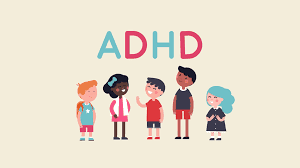
Có thể cải thiện một số triệu chứng ADHD thông qua dinh dưỡng
Overall nutrition : Assume that certain foods you eat might make your symptoms better or worse . You also may not be able to eat certain things that may help improve symptoms. Dietary Supplements: Supplementation with omega-3s and/or other broad-spectrum micronutrients (not derived from drugs) may be beneficial in reducing ADHD symptoms Elimination diet: No foods foods or ingredients that you think might cause certain behaviors or make your symptoms worse. Patients should consult their treating doctor or nutritionist before supplementing or changing their diet
Vinmec International General Hospital is one of the hospitals that not only ensures professional quality with a team of leading medical doctors, a system of modern equipment and technology, but also outstanding with comprehensive and professional medical examination, consultation and treatment services; civilized, polite, safe and sterile medical examination and treatment space.
Please dial HOTLINE for more information or register for an appointment HERE. Download MyVinmec app to make appointments faster and to manage your bookings easily.
Reference source: mentaltimes.com



